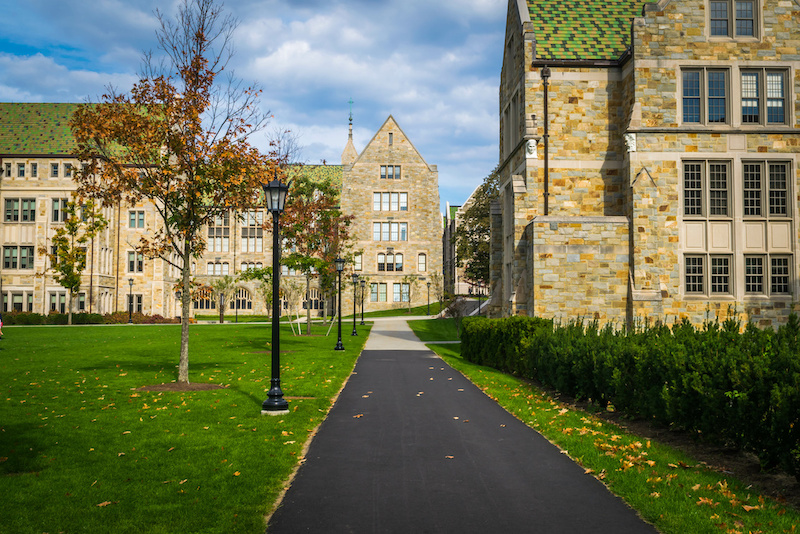It’s important to have affordable college options. It’s equally important for everyone who’s capable of completing college to be able to attend college. It’s also natural based on the first two sentences to ask, “What should college tuition cost?”
Many of us would like the answer to the question “What should college tuition cost?” to be zero. However, colleges cost money to operate, and someone or some organization must pay for those college tuition costs, even if it’s not the students.
After several weeks of reviewing, analyzing, and writing about the costs of grad school, I opted to step back and take a different view of undergraduate and graduate college tuition.
My first approach was to reflect on the student loan balances I had after graduating from Duke University (AB – $2,100) and Tulane University (MBA – $1,800) in the late 1970s. They were National Student Defense Loans (NSDLs) at 3% interest per annum and were repaid in a timely manner over 10 years. I applied the standard Consumer Price Index (CPI) inflator to those loan balances and calculated $10,290 and $7,578 for CPI-indexed balances ($17,868) as of June 2021.
Thanks to the Common Fund, we have the Higher Education Price Index (HEPI), which is higher than the CPI. Using my graduation years of 1976 and 1978 as base years for my student loan debt, I calculated $12,814 and $9,663 for the HEPI-inflated balances ($22,477).
Reflecting on my college years, I remember that all three of my younger siblings in Maryland attended public colleges. None of them had student loans after graduating from college. They worked part-time during the fall and spring terms and full-time during the summer, so most of their earnings paid for books, room, and board. Our parents paid for any college tuition not covered by grants.
My choice to attend private colleges impacted some of my post-grad school financial decisions. I bought a used car instead of a new car to replace my very used car from college. I rented an apartment with a roommate for nearly six years until I saved enough money for a down payment on a townhouse.
My non-scientific process derived a theoretical student loan balance max for me if I were a student today of $25,000 for undergrad loans and $20,000 for grad school loans. Quite frankly, I would prefer to owe zero but working part-time year-round doesn’t go as far toward paying college costs as it did in the 1970s.
My monthly loan payment for both loans would be $522 assuming a 10-year repayment schedule and a 7% interest rate. My loan payments would most likely keep me in a used car as well as an apartment for a few years like in the past. I wonder if I would consider deferring grad school until my employer agreed to pay for it.
How do my college tuition numbers compare to reality? The average loan debt for a bachelor’s degree for a 2019 college graduate was $28,950. That’s not too far from my SWAG number of $25,000.
The alignment between my targeted grad school debt number of $20,000 and reality is far apart, however. According to the same source, the average grad school loan balances are:
- Grad school – $71,000
- Law school – $145,500
- MBA – $66,300
- Medical school – $201,490
- Dental school – $292,169
- Pharmacy school – $179,514
Since my last six blog posts were about grad school debts and college tuition, I’ll keep my comment(s) short. If I were graduating with my bachelor’s degree today and with the same family finances as I had in 1976, my choices for grad school and profession would be based on my estimate as to what I could afford to borrow. If the average debt for these grad school options were added to my targeted undergrad borrowings, I would have some tough decisions to make.
Looking at the major differences in average borrowings between undergraduate and graduate programs, you can’t help but think that the undergraduate loan caps have helped to keep costs down and the graduate loan programs lack of caps have not.











